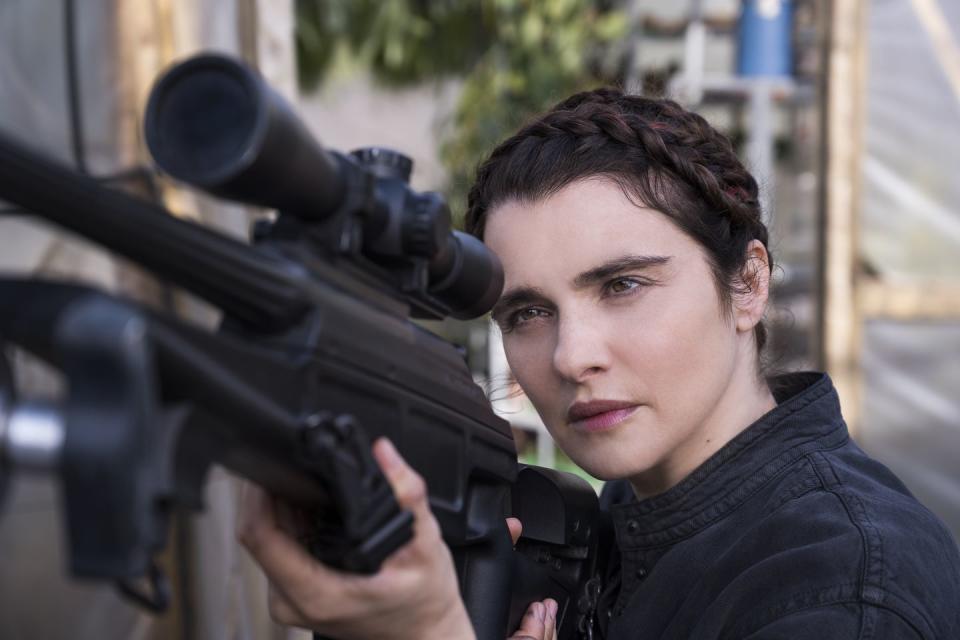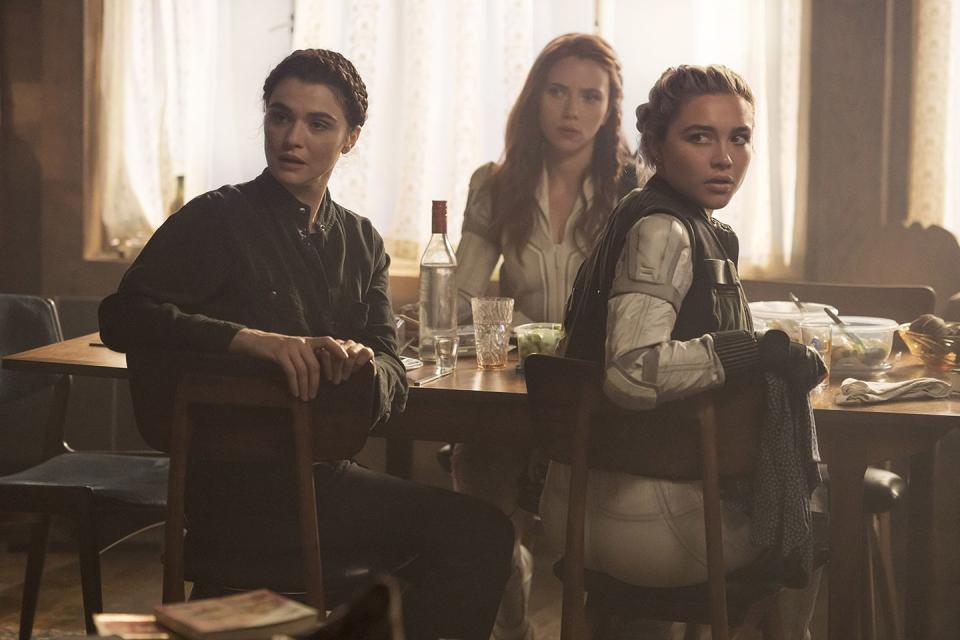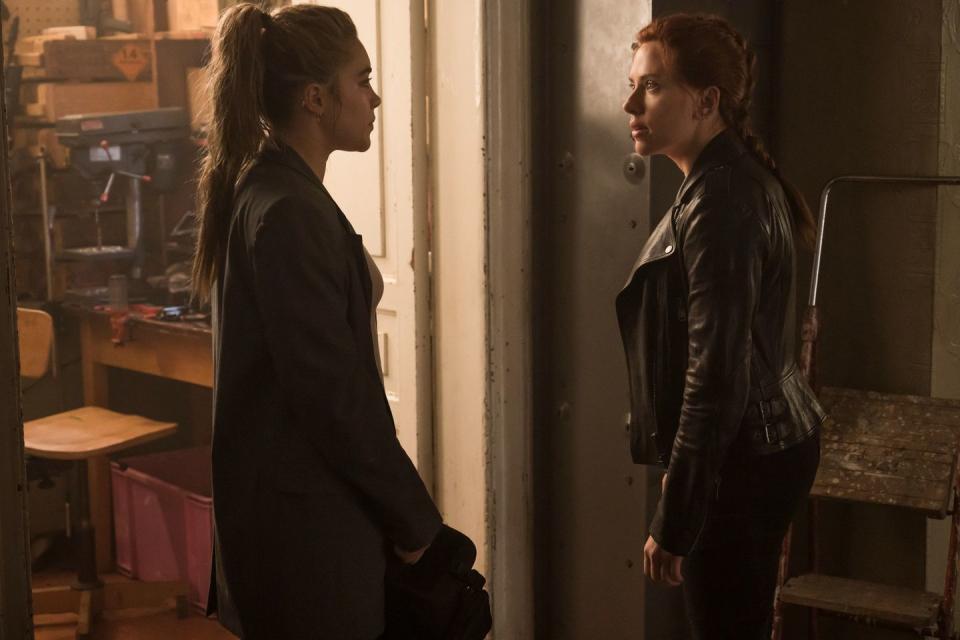Rachel Weisz talks reproductive rights and taking down the patriarchy

Black Widow is here to atone for Marvel's sexist films of the past with its feminist send off for Scarlett Johansson's Natasha - and Rachel Weisz has loved making her Marvel debut in this exhilarating and redemptive story from the female gaze.
The Oscar-winner stars as elite Russian spy and eccentric scientist Melina, a mother-figure to Johansson's Natasha and her younger sister Florence Pugh's Yelena, and 'wife' to David Harbour's completely infatuated Alexie.
Known as the Iron Maiden and an icy villainess hellbent on avenging Black Widow in the graphic novels, Melina is more nuanced and multifaceted in the movie adaptation. "Melina is not a cliché - she's ambiguous. You can't really tell if she's got a heart, or doesn't really have a heart, she's definitely layered," Weisz told Harper's Bazaar UK.
"I found her really funny on the page because she doesn't have any sense of humour which can make a very funny character. She's quite deadpan and she takes thing very seriously and she's quite earnest, too."

The action-thriller begins with a seemingly happy family unit in suburban Ohio in 1994, giving Natasha a backstory with an idyllic childhood, before she's ripped away from it and manipulated into a deadly assassin in a top-secret Soviet training program known as the Red Room.
Fast forward two decades later, and Natasha is on a mission to confront the Red Room's overseer General Dreykov and topple his disturbing operation - while seeking allegiance from Alexie and Melina.
Directed by Cate Shortland, Johansson's standalone swan song attempts to humanise Natasha, give her agency, and obliterate the uncomfortable "hyper-sexualisation" that the superhero has endured in the past. Johansson spoke of this recently, lamenting how Robert Downey Jr's Iron Man reduced Natasha to "a piece of ass", a "piece of meat" in 2010's Iron Man 2.

The epic fight scenes between Natasha and Yelena, or Natasha and her adversaries, are an example of how the female characters are no longer being sexualised, as Shortland's "female gaze enables you to feel their subjectivity and personality", Weisz explains.
"The massive and incredibly impressive fight sequence where Scarlett [Johansson] and Florence [Pugh] fight as sisters, when they first meet each other in Budapest, I found that exhilarating," she says. "You're making me realise why I loved it so much; it's because they're both subjects, they're not objects. There is something about Cate's female gaze that enables you to feel their subjectivity and personality.
"There's this feeling that they're going to kill each other, these women are going to kill each other to survive, and it's not about objectifying their spectacular beauty and sexiness - that isn't the focus of the scene. The focus of the scene is their subjectivity, they're people. They are real people. And how they look - that's how they look. There's something so different about subject over object."

When the sickening revelation hits that Natasha and Yelena, along with the other Black Widows, have had their reproductive organs involuntarily removed, it served as a powerful reminder that some women even now, the world over, still don't have productive rights or control over their own bodies.
Coinciding with Britney Spears' harrowing recent claims that her conservatorship is legally enforcing her to keep her IUD (also known as intrauterine contraceptive device) against her wishes, the movie also contributes to an important public conversation about reproductive coercion and how men can control women by denying them bodily autonomy.
"Yes [this is the message]," Weisz affirmed. "A resounding yes, and I think the director Cate would be loving everything you're saying, it's really and completely emotionally in line with some of the story that Cate wanted to tell [about women] - freedom versus subjugation, personal choice and free will versus being in literal chains or figurative chains. Yes, yes, yes, yes."

Although it had been rumoured by some Marvel fans that Melina could harbour a rivalry with Natasha, and could compete against her in an attempt to destroy her, ultimately the women unite to bring down the patriarchal villain, fitting with the film's theme of female solidarity.
"I love having that feeling of feeling emboldened and taking down the patriarchy," Weisz added. "It's complicated from my character because she's really in love with Alexie, who is very much part of the patriarchy, and a ridiculous part of the patriarchy! [But] For me, inside the story it didn't feel like that; it was about being reunited with girls who are now women. It's about celebrating the sisterhood."
Black Widow is in cinemas now, or available to order on Disney+ with Premier Access.
You Might Also Like


